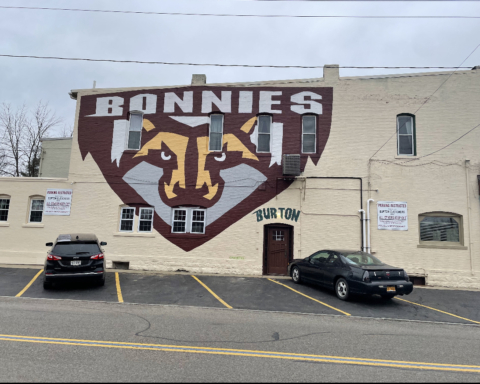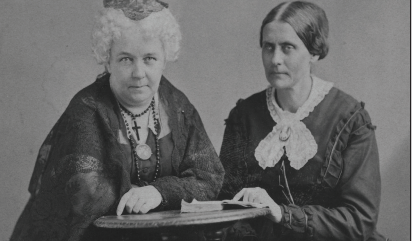Above the entrance to De La Roche Hall, a painting of three oil rigs memorialize the vital role oil played in the history of Olean.
Considering the Franciscans’ activism against climate change today, artwork honoring oil rigs seems quite out of place at a Franciscan institution.
Yet, in the summer of 1627, Joseph De La Roche Daillon, a Franciscan missionary to the Huron Indians, was the first European to discover oil in America, according to the St. Bonaventure Archives. Local Native Americans brought him to an oil creek near the Allegany River where they used the resource for medicinal purposes.
While oil can have negative effects on our environment and may very well be one of the driving factors behind climate change, life would be very difficult for most people without it.
Like it or not, oil fuels the economy.
Suppose someone wanted to be environmentally friendly and decided to stay home and make a sandwich instead of driving to a restaurant for dinner. While admirable, their sandwich at home is also a product of oil.
All the ingredients – ham, cheese, bread – were created and processed by machines fueled by oil, transported in plastics made with oil, on trucks fueled by oil, driven on roads made with oil, to stores powered by oil.
A single sandwich made at home owes its existence to oil just as much as a car ride.
Oil is an inescapable fact of life.
Americans consume products daily that contain petroleum such as clothing, makeup, credit cards, soaps, detergents, trash bags and shoes, just to name a few. Life seems unimaginable without the resource.
It’s easy to talk about the damage oil can do to our environment. It’s hard to accept the fact that our lives are made better because of it. The three oil rigs adorning De La Roche Hall serve as a humble reminder of this inconvenient truth.
Tyler Grudi is a staff writer for the Bona Venture. His email is gruditj15@bonaventure.edu








